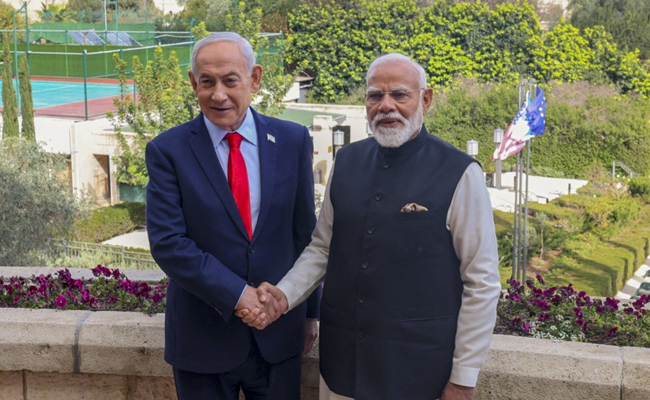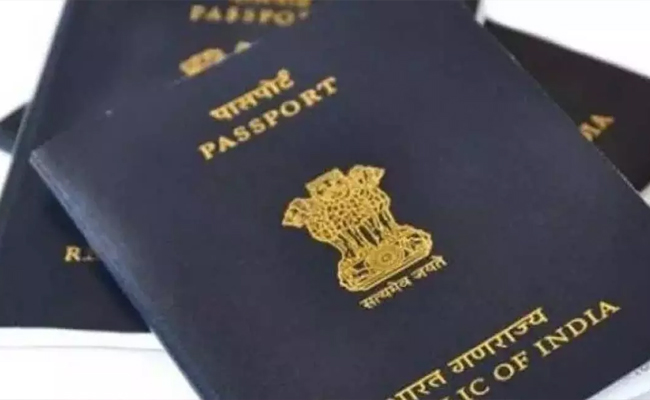Hyderabad (PTI): With "happy tears", Indian tennis legend Sania Mirza on Sunday ended her path-breaking journey as a player at the place where it all began.
By playing in exhibition matches featuring Rohan Bopanna, Yuvraj Singh and her 'best friend' Bethanie Mettek Sands, Sania finally said goodbye to her illustrious career at the Lal Bahadur Tennis Stadium, the venue where she signalled her arrival on the big stage with a historic WTA singles title triumph nearly two decades ago.
The exhibition games were watched by eminent personalities, including union law minister Kiren Rijiju and former India cricket team captain Mohammed Azharuddin.
Having arrived at the venue in a swanky red car, the 36-year-old Sania was greeted by cheering fans that also included prominent personalities.
Sania, who turned emotional while giving her farewell speech, said the greatest honour for her has been to play for the country for 20 years.
On the occasion, the six-time Grand Slam winner (three in women's doubles and as many in mixed doubles) played two mixed doubles exhibition matches and won both of them.
The venue, where she had won some memorable titles, wore a festive look with banners like 'Celebrating The Legacy of Sania Mirza' put up.
Some fans held placards that read 'thank you for the memories' and 'we will miss you, Sania'.
Spectators, mostly school children, cheered her as she entered the court.
"I am so excited to play my last match in front of you all," she said, speaking ahead of the match.
Rijiju, who was formerly the union sports minister, Telangana minister K T Rama Rao, Azharuddin and Yuvraj were among the guests present at the venue.
"I have come to Hyderabad for Sania Mirza's send-off, her farewell match. I am delighted to see so many people turning up for this. Sania Mirza is an inspiration not just for Indian tennis but for India sports too," said Rijiju.
"When I was the sports minister I used to be in touch with Sania. I wish her all the very best for her future endeavours."
Her family members and friends were also present at the venue.
After the match, Sania was felicitated by Rama Rao and Telangana sports minister V Srinivas Goud.
"The greatest honour for me has been to play for my country for 20 years. It is every athlete's dream to represent their country at the highest level. I was able to do that," Sania, who thanked everyone for supporting her in her journey, said.
As fans cheered her, Sania turned emotional.
"These are very, very happy tears. I could not have asked for a better send-off," she said.
Though she may have retired, she is going to be part of tennis and sports in India and in Telangana, she said.
She hoped that "many, many Sanias" would emerge in the country.
Azharuddin, whose son is married to Sania's younger sister Anam, praised her contribution to tennis.
"I think today we are giving a great farewell to Sania. What she has done for tennis for women in India and all over the world, I think, it is an example. I wish her all the best," Azharuddin told reporters.
"I know people would want her to continue to play more. But every career has to end. I think she has taken the right decision," he said.
Several fans said they feel sad over Sania retiring from professional tennis.
Let the Truth be known. If you read VB and like VB, please be a VB Supporter and Help us deliver the Truth to one and all.
Jerusalem (PTI): India and Israel on Thursday elevated their "time-tested" relationship to a special strategic partnership and agreed to soon firm up a "mutually beneficial" free trade deal even as Prime Minister Narendra Modi strongly backed the Gaza peace initiative, asserting that humanity must never become a victim of conflict.
Following talks between Modi and his Israeli counterpart Benjamin Netanyahu, the two sides inked a plethora of agreements to expand cooperation in areas of trade, agriculture, energy, cyberspace and digital payment.
India and Israel also vowed to expand their already close defence partnership by working towards joint development and joint production of military hardware under the framework of the transfer of technologies.
In his media statement, Modi said India's security interest is linked to peace and stability in the Middle East, adding that New Delhi fully supports the Gaza Peace Initiative.
"India's stance is clear: humanity must never become a victim of conflict. A path to peace has been created through the Gaza Peace Plan. India has fully supported these efforts," he said.
"In the future as well, we will continue dialogue and cooperation with all countries," he said.
PM Modi landed in Israel on Wednesday on a two-day visit. It is his second visit to Israel in nine years.
In his remarks, the prime minister said India and Israel have a united view that there is no place for terrorism in the world and both sides stand shoulder-to-shoulder in countering terrorism and its supporters.
"Our relationship is founded on the strong bedrock of deep trust, shared democratic values, and human sensitivities. Our bond has stood the test of every trial of time," he said.
"Today, we have taken the historic decision to elevate our time-tested partnership to the status of a 'Special Strategic Partnership'," he said.
The prime minister also announced the establishment of an India-Israel critical and emerging technologies partnership to impart a new momentum for cooperation in areas of artificial intelligence, quantum, and critical minerals. "I am pleased that an agreement has been reached for the use of UPI in Israel," he said.
The prime minister, referring to the threat of terrorism, said India and Israel will continue to confront the menace unitedly.
"India and Israel are completely clear that there is no place for terrorism in the world. In any form, in any expression, terrorism cannot be accepted," he said.
"We have stood shoulder-to-shoulder in opposing terrorism and its supporters, and we will continue to do so," he added.
India and Israel also discussed the implementation of the India-Middle East Europe Economic Corridor (IMEC) and cooperation under the framework of I2U2 (India-Israel-UAE-USA).





